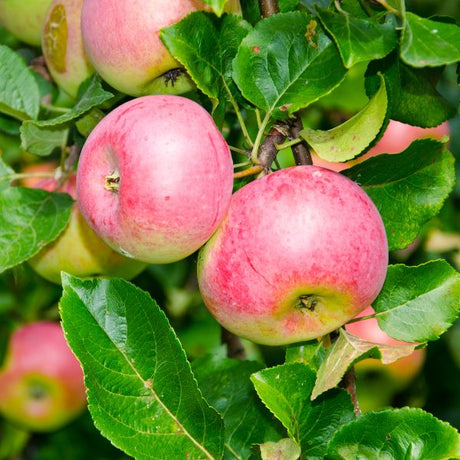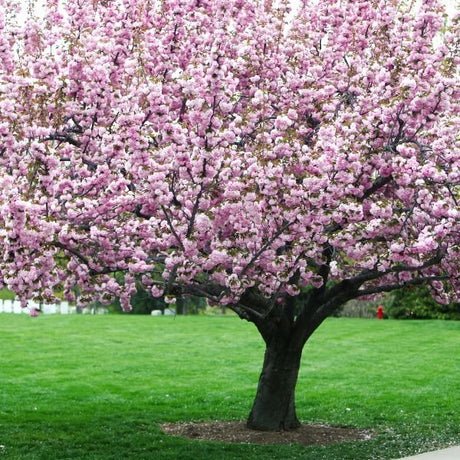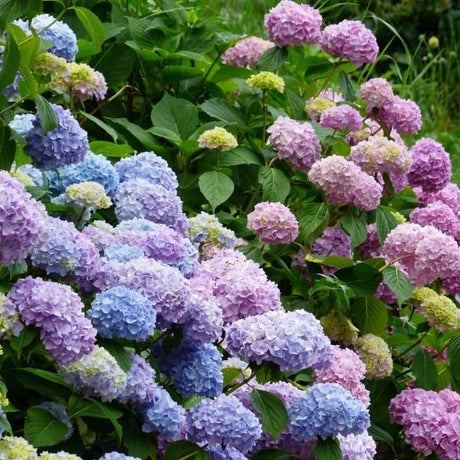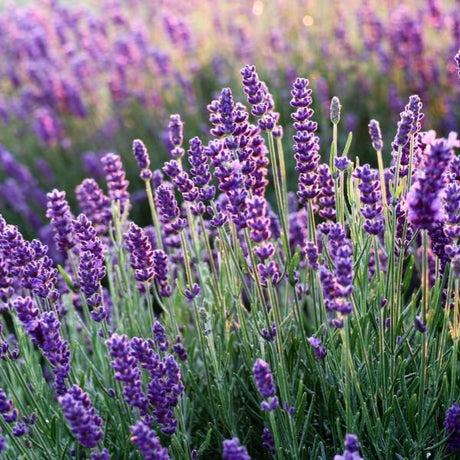Appalachian Blue Skullcap
Scutellaria x 'Appalachian Blues'
- Stay Protected with Plant Sentry ™
Appalachian Blue Skullcap - #1 Container is backordered and will ship as soon as it is back in stock.
Plant Sentry™
Plant Sentry™

Plant Sentry™ Protected
Your order is protected by our compliance system that:
- Prevents restricted plants from shipping to your state
- Ensures plants meet your state's agricultural requirements
- Protects gardens from invasive pests and diseases
Delivery and Shipping
Delivery and Shipping
Delivery and Shipping
Fast, Safe Plant Delivery
Ships in 3-4 business days • Tracking provided • Weather protected
| Under $50 | $9.99 |
| $50 - $99.99 | $14.99 |
| $100 - $149.99 | $16.99 |
| $150+ | $24.99 |
✓ Zone-specific timing • ✓ Professional packaging • ✓ Health guarantee
Understanding Plant Options
Nature Hills offers plants in two main formats:
- Container Plants: Grown in pots with soil, sized by container volume and plant age
- Bare Root Plants: Dormant plants without soil, sized by height measurements
Container Plant Sizes
Container sizes indicate plant age and growing capacity rather than liquid volume equivalents. Our containers follow industry-standard nursery "trade gallon" specifications, which differ from standard liquid gallon measurements.
Young Plants (6 months to 18 months old)
| Container Size | Actual Volume | Metric Equivalent |
|---|---|---|
| 2" x 2" x 3" | 0.18 - 0.21 dry quarts | 0.20 - 0.23 dry liters |
| 4" Container | 0.31 - 0.87 dry quarts | 0.35 - 0.96 dry liters |
| 4.5" Container | 0.65 dry quarts | 0.72 dry liters |
| 6" Container | 1.4 dry quarts | 1.59 dry liters |
| 1 Quart | 1 dry quart | 1.1 dry liters |
| 5.5" Container | 1.89 dry quarts | 2.08 dry liters |
Established Plants (18 months to 2.5 years old)
| Container Size | Actual Volume | Metric Equivalent |
|---|---|---|
| 2 Quart | 2 dry quarts | 2.2 dry liters |
| #1 Container | 2.26 - 3.73 dry quarts | 2.49 - 4.11 dry liters |
| 5" x 5" x 12" | 3.5 - 4.3 dry quarts | 3.85 - 4.74 dry liters |
Mature Plants (2-4 years old)
| Container Size | Actual Volume | Metric Equivalent |
|---|---|---|
| #2 Container | 1.19 - 1.76 dry gallons | 5.24 - 7.75 dry liters |
| #3 Container | 2.15 - 2.76 dry gallons | 8.14 - 12.16 dry liters |
Large Plants (3-5 years old)
| Container Size | Actual Volume | Metric Equivalent |
|---|---|---|
| #5 Container | 2.92 - 4.62 dry gallons | 12.86 - 20.35 dry liters |
| #6 Container | 5.25 - 6.01 dry gallons | 23.12 - 26.42 dry liters |
| #7 Container | 5.98 - 6.53 dry gallons | 26.34 - 28.76 dry liters |
Bare Root Plants
Bare root plants are sold by height from the root system to the top of the plant. Plants may exceed minimum height requirements.
Common Sizes:
- Trees: 1 foot, 2 feet, 3 feet, 4 feet, 5 feet, 6 feet
- Shrubs & Perennials: 1 foot, 18 inches, 2 feet
Important Notes
Container Volume Specifications
- Trade Gallon Standard: Our containers follow industry-standard "trade gallon" specifications established by the American National Standards Institute (ANSI Z60.1) for nursery stock
- Volume Variations: Actual soil volume may vary due to plant root systems and growing medium settlement
- Age Indicators: Container size primarily indicates plant age and maturity rather than liquid volume equivalents
Growing Conditions
- Plant size can vary based on variety and growing conditions
- Container size helps indicate plant maturity and establishment level
- Larger containers generally mean more established root systems and faster landscape establishment
Seasonal Availability
- Bare root plants are available seasonally when dormant
- Container plants are available throughout the growing season
- Specific varieties may have limited availability in certain sizes
Questions?
For questions about specific plant sizes or availability, please contact our plant experts who can help you choose the right size for your landscape needs.
Plant Highlights
Appalachian Blue Skullcap highlights at a glance!
Specifications
Specifications
-
Brand
-
Botanical Name
-
Growing Zones
-
Mature Height
-
Mature Spread
-
Sun ExposureFull Sun
-
Moisture
-
Soil
-
Growth RateMedium
-
Pollinator Friendly
-
Fragrant
-
Pruning Time
-
Bloom PeriodSummer
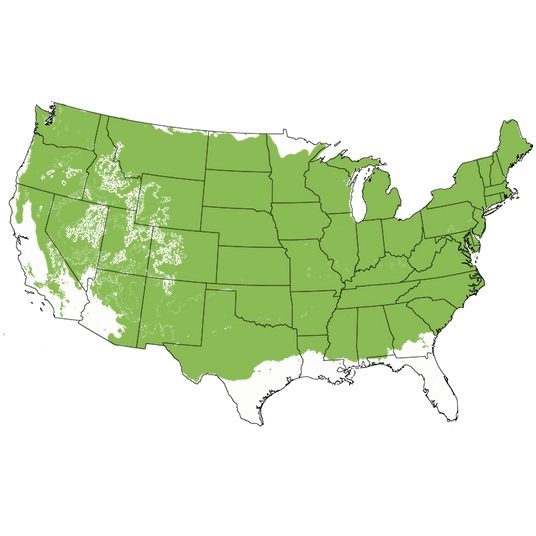
Growing Zones 4-8
Pollinator-friendly Appalachian Blue Skullcap (Scutellaria x 'Appalachian Blues') is a wonderfully hardy perennial that grows in sun or shade conditions. Fragrant bicolor blue and white flowers bloom high atop dainty foliage.
You'll feel good about adding these darling native plants to your garden…their "little dish-shaped" flowers are a real favorite with honeybees and butterflies! Go ahead and lose count of how many butterflies come to visit the pretty, delicate spires of violet blooms.
Planting and Application:
Developed by esteemed Peter Heus, Appalachian Blue Skullcap is a well-behaved native cultivar cross of Scutellaria serrata and Scutellaria ovata with a mounding habit that won't spread or run rampant. The dark green foliage features serrated edges and deeply textured veining.
- Add to a shady planting with Lamium and Sweetspire. Read our blog with more helpful Shade Garden plant recipes to consider.
- Use as an enticing, nectar-rich "Filler" in Salsa Garden patio pots, or tuck them near the edge of your backyard veggie garden. If you want plenty of homegrown fruits and vegetables…you'll need pollinators nearby.
- For small lots, Appalachian Blue Skullcap is very desirable with an extended season of bloom. Mix them into your garden borders as a lovely summertime display.
- Excellent in both Butterfly and Pollinator Gardens, this showy Skullcap provides an attractive, cool-toned counterpoint. It stays small enough to use near the edge of your plantings…all the better to study the tiny, tubular blue flowers!
- Skullcap is also a medicinal herb used in both Traditional Chinese Medicine and by the Native Americans. Perennial Appalachian Blue brings a pert and pretty presentation that you can count on year after year.
#ProPlantTips for Care:
Luckily, Appalachian Blue Skullcap grows in any sun condition…from full sun to partial shade and shade. It's best if they receive at least two hours of sunlight a day.
- This cold hardy perennial prefers well-drained soil. Use symbiotic Nature Hills Root Booster in the planting hole, and add a light layer of mulch over the roots.
- Although Skullcap will survive periodic drought once established; we recommend a moderate schedule of water. Get expert watering tips from the NatureHills.com Horticulture Team.
- Wait until early spring to trim back the dried foliage. Deadhead as needed to extend the season of bloom.


